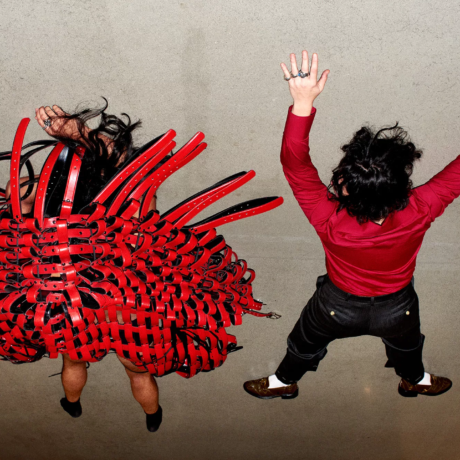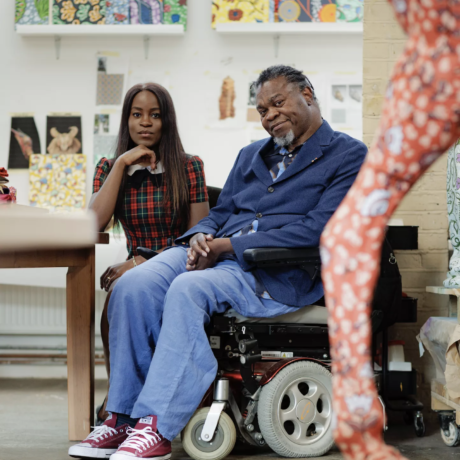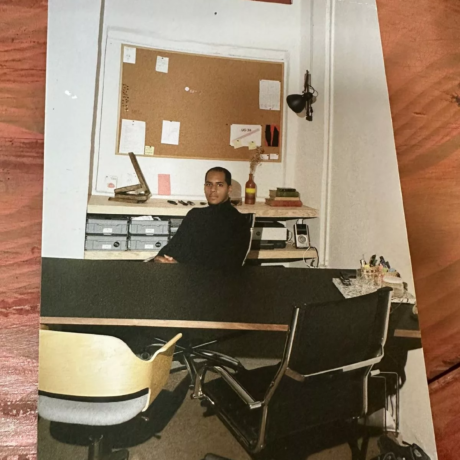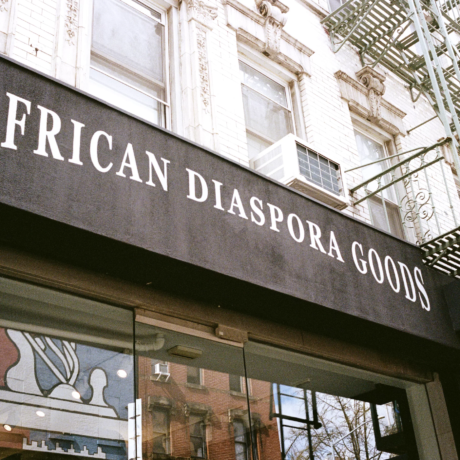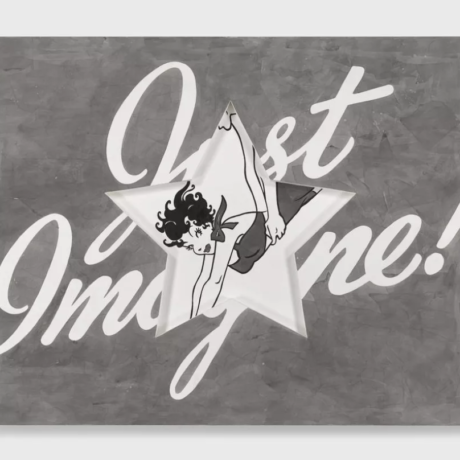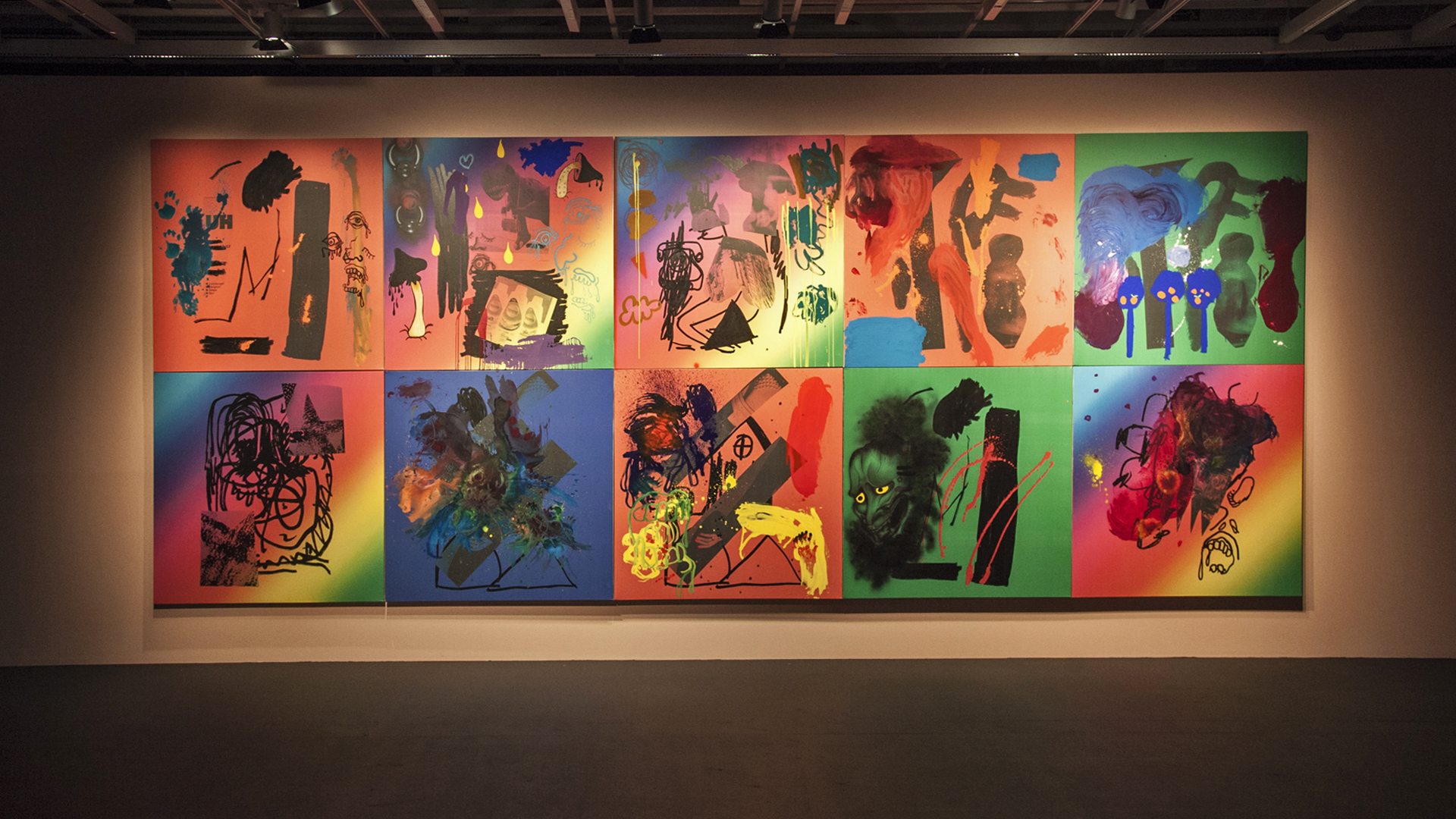
“Even in a dystopia, there is always hope”— so says Greek artist Jannis Varelas, gesticulating animatedly towards a large scale painting, rolled up magazine in hand, as he walks us around his exhibition ‘Monster’ at the Onassis Cultural Centre, Athens. The room is in the busy throngs of last-minute preparation: in ten minutes the opening will commence, the outside steps filling to the brim with Athenians drinking and smoking, dipping in and out of the building’s basement in which Varelas’ work resides.
The piece we are looking at, which alludes to nightmares as described in Freud’s influential ‘The Interpretation of Dreams’ (A Couple of Notes of Hannah’s Dream, 2017), is made up of ten separate panels of blazing colour, dark smudged shapes and allusions to psychedelic experience (more than one wobbly, dripping mushroom makes an appearance) and is not initially generous in the communication of hope that Varelas speaks of. But it is there. The artist’s work is characterised by a striking use of colour: crimson, cobalt, vivid yellows and formal navy blues are scrambled together bringing to mind a process that appears wildly expressive but is in fact the product of a painstakingly precise application of paint, built up in several stages. And these rainbows, providing the backdrop to the work, are hopeful—something needed in Athens as the city hums with conversations as to how it can fare emerging from the crisis: the subject we eventually reach in every conversation with local artists and curators.
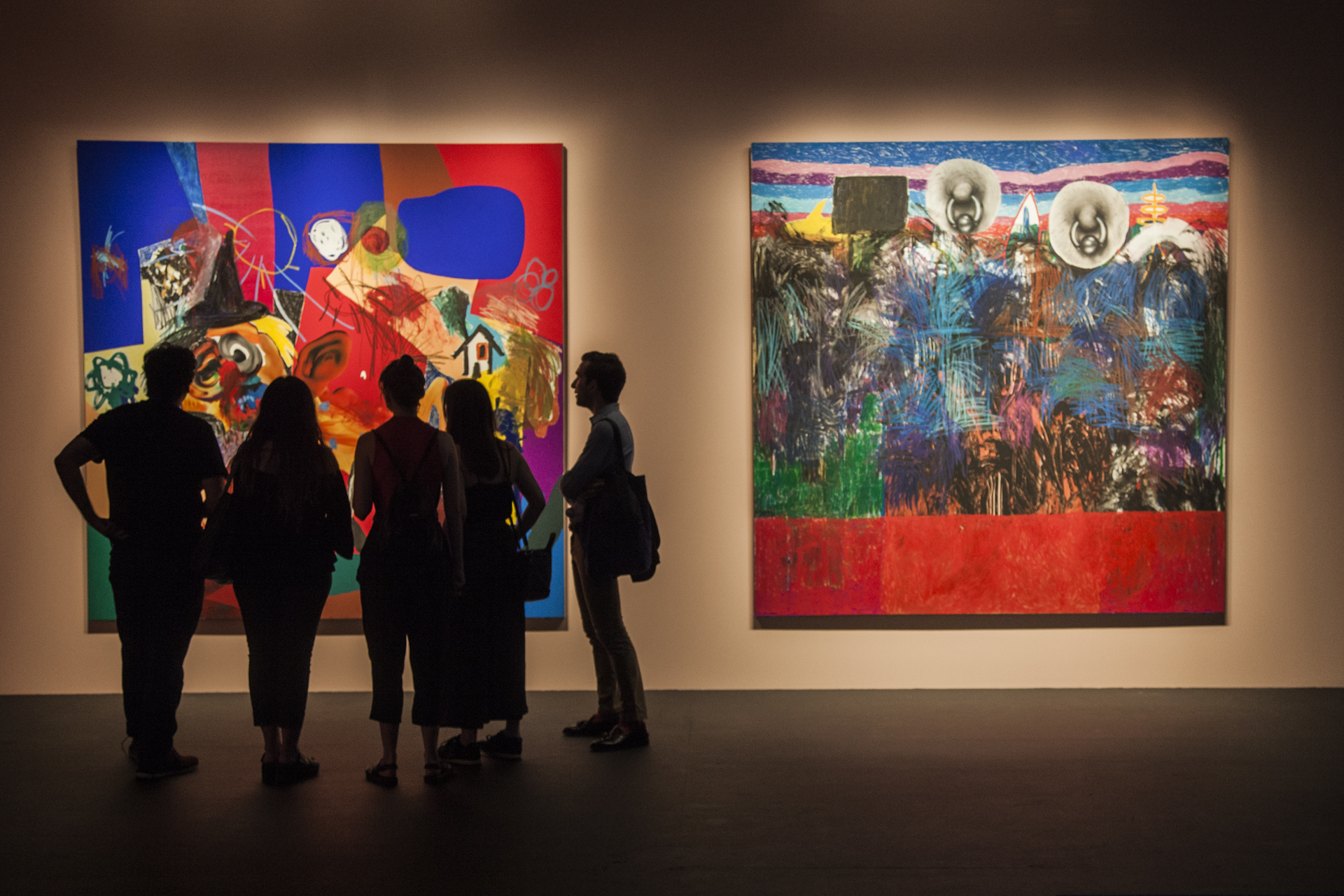
As Gianni Jetzer, Curator at Large at the Hirschhorn Museum in Washington points out: ‘The works of Jannis Varelas share an electrifying energy. They forego any one-point perspective in order to produce a flat vision of multitude rather than concentration, stressing diversity over singularity, equality over privilege. His paintings function as a lingua franca between generations. They overcome questions of origin, power or social status in order to create common patterns for identification. Highly inclusive by nature they groom a way for societies to come, which recognize outsiders as valuable members of society”.
Afroditi Panagiotakou, the Onassis Foundation’s Director of Culture and the Centre’s General Manager, tells us over dinner that this desire to analyse and comment upon things to come, on ways of organizing society, is fundamental to the Greek temperament: a character infused with its nation’s philosophical beginnings. This extends not only to the present social and economic situation but also to the coming years, and what imposing technologies they might deliver.
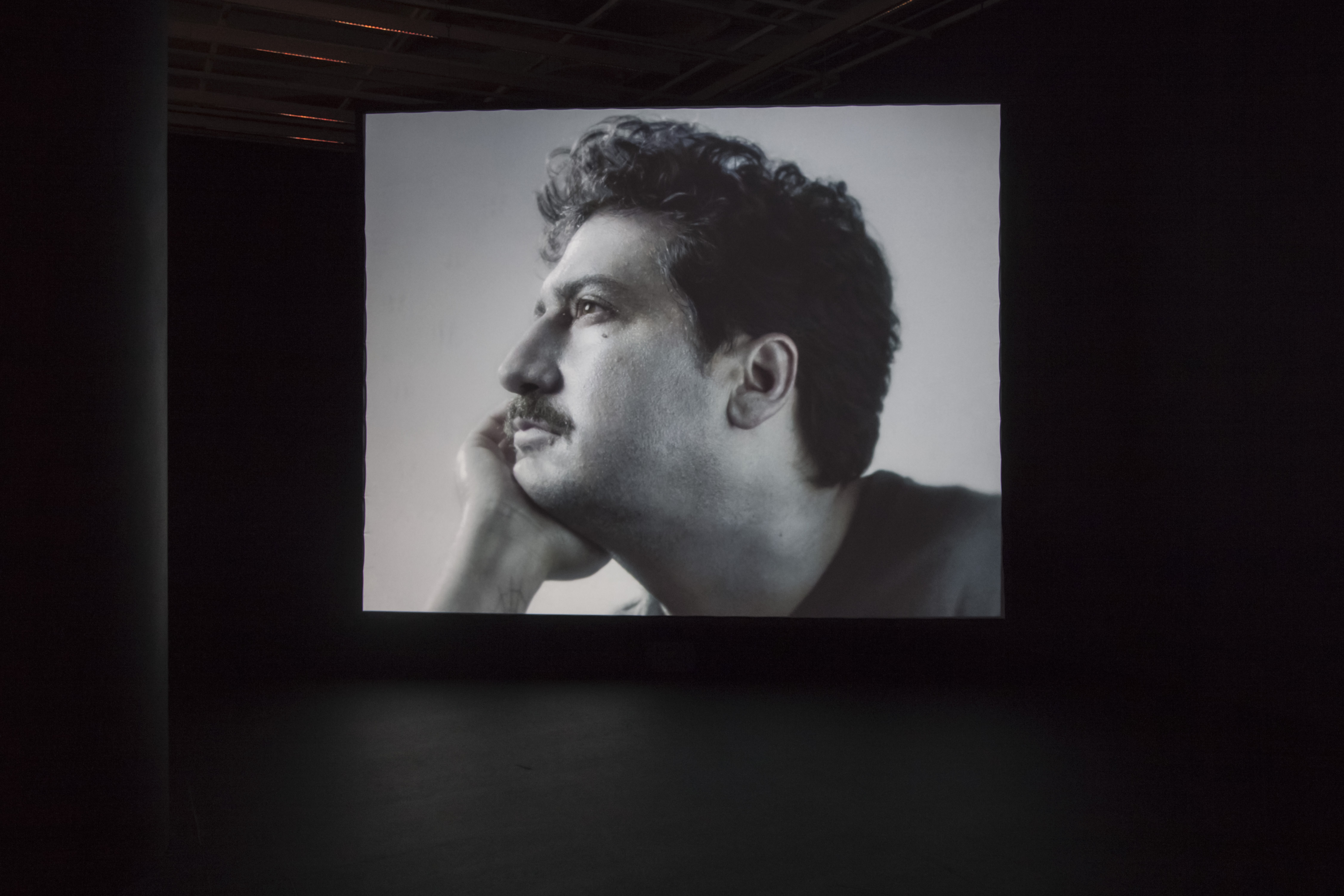
In that vein, OCC’s summer exhibition ‘Tomorrows’, held off-site at the city’s Diplareios School, sees artists, architects and designers propose urban fictions for possible futures, organized around the concept of ‘Ekistics’ as conceived by Greek visionary city planner Constantionos Apostolou. This science of urban dwelling was first coined in 1942, and proposed that the success of future city development was based on the balance between five fundamental elements: nature, shells (or buildings), networks (transport), society and antropos (the human). Assuming these are out of balance, these fictions (embodied by a host of works in different mediums across the site), are not quite so optimistic.
‘Feral Remnants (Dog)’ by Athens-based Manolis Daskalakis-Lemos is a dreamy projection of a large, fluffy white Samoyed dog walking and rooting around a barren landscape that might be a post-apocalyptic wasteland, implied by the lack of any trace of human presence. The video work is distortedly reflected in a sharp pool of petroleum that sits on the floor beneath the projection, trembling slightly in response to the deep bass of the original music score.
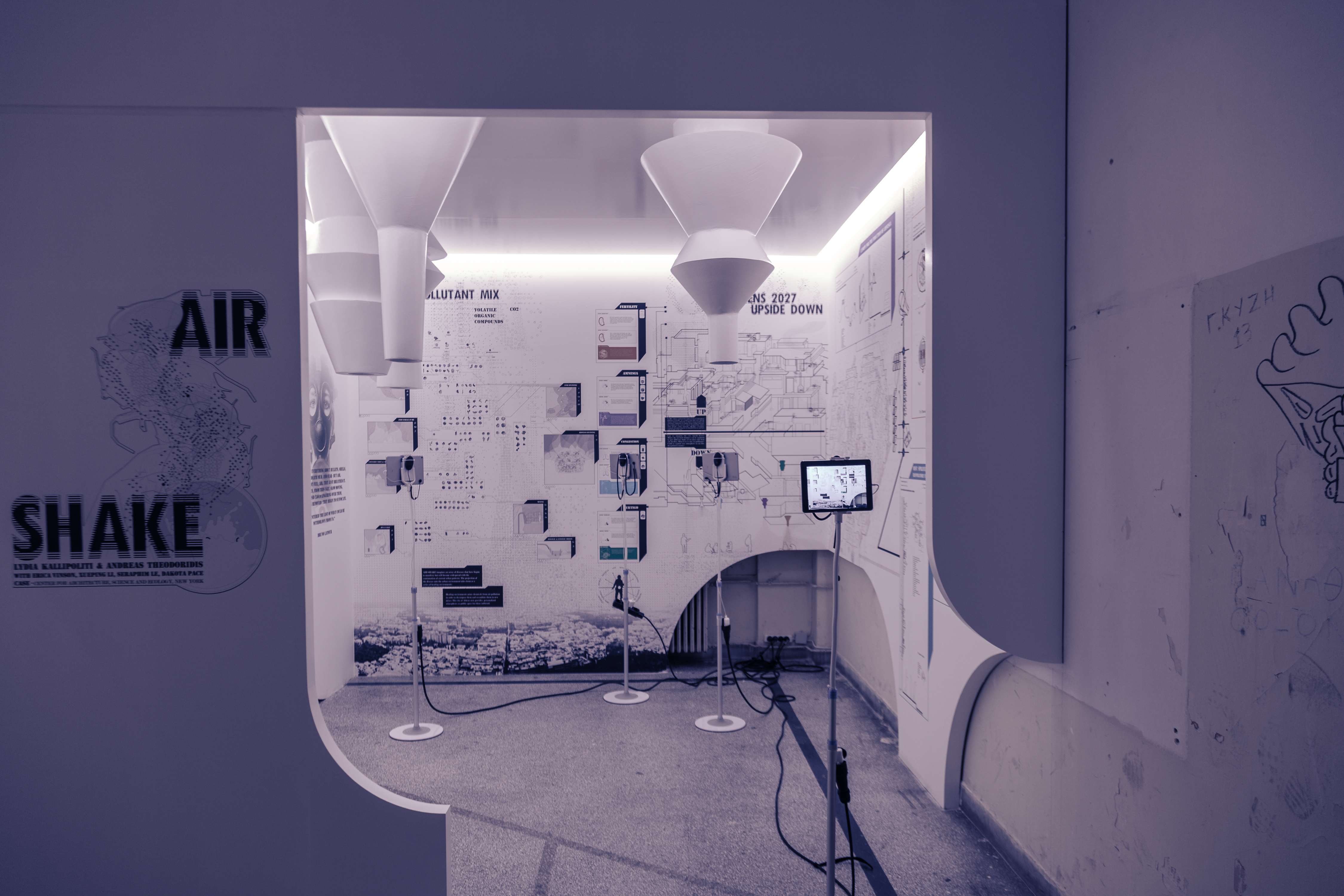
Once-domesticated animals appear elsewhere in the exhibition in the form of ‘Kitty AI’, a video work by Pinar Yoldas set in 2039, when an artificial intelligence with the affective capacities of a kitten becomes the first non-human governor. She leads a politician-free zone with a network of artificial intelligences and lives in the mobile devices of her citizens. The kitten speaks in an impossibly cute mew, imitating the style of children’s cartoon characters that are designed to soothe, but once her monologue begins her sharply satirical tongue becomes plain, with descriptions of violence and bloody backing graphics adding an unsettling edge to the comic facade. Describing the events that led to her dominion, Kitty AI says of millennials, “We had experienced violence but mostly from video games of CGI heavy horror movies. We had experienced loss, but only when we lost our iPhones or broke up with our “swipe-right” girlfriends. We had experienced chaos, but only in our desktops or our bedrooms while looking for clean underwear amidst a vortex of scarcely worn outfits.”
Assuming the residents have a few years before Kitty takes to her throne, what will happen to Athens in the meantime? A quick verbal survey at the opening’s after-party suggested that low property prices and a recent injection of cultural energy (helped along by the recent spotlight on documenta – despite the voices of protest) will mean the Greek capital can assert itself as ‘the new Berlin’, an accolade that’s been gifted to most European cities at this point. No—Panagiotakou argues that Athens must ensure it does not fall into the trap of aiming for trendiness but instead prove that it can provide a lasting hub of culture that supports Greek artists and offers their talents to exhibitions elsewhere. As my taxi driver remarked when we drove past the Temple of Olympian Zeus, “the rest of Europe think we owe them money. It’s not true. They owe us—art, culture, language—they owe us everything.”
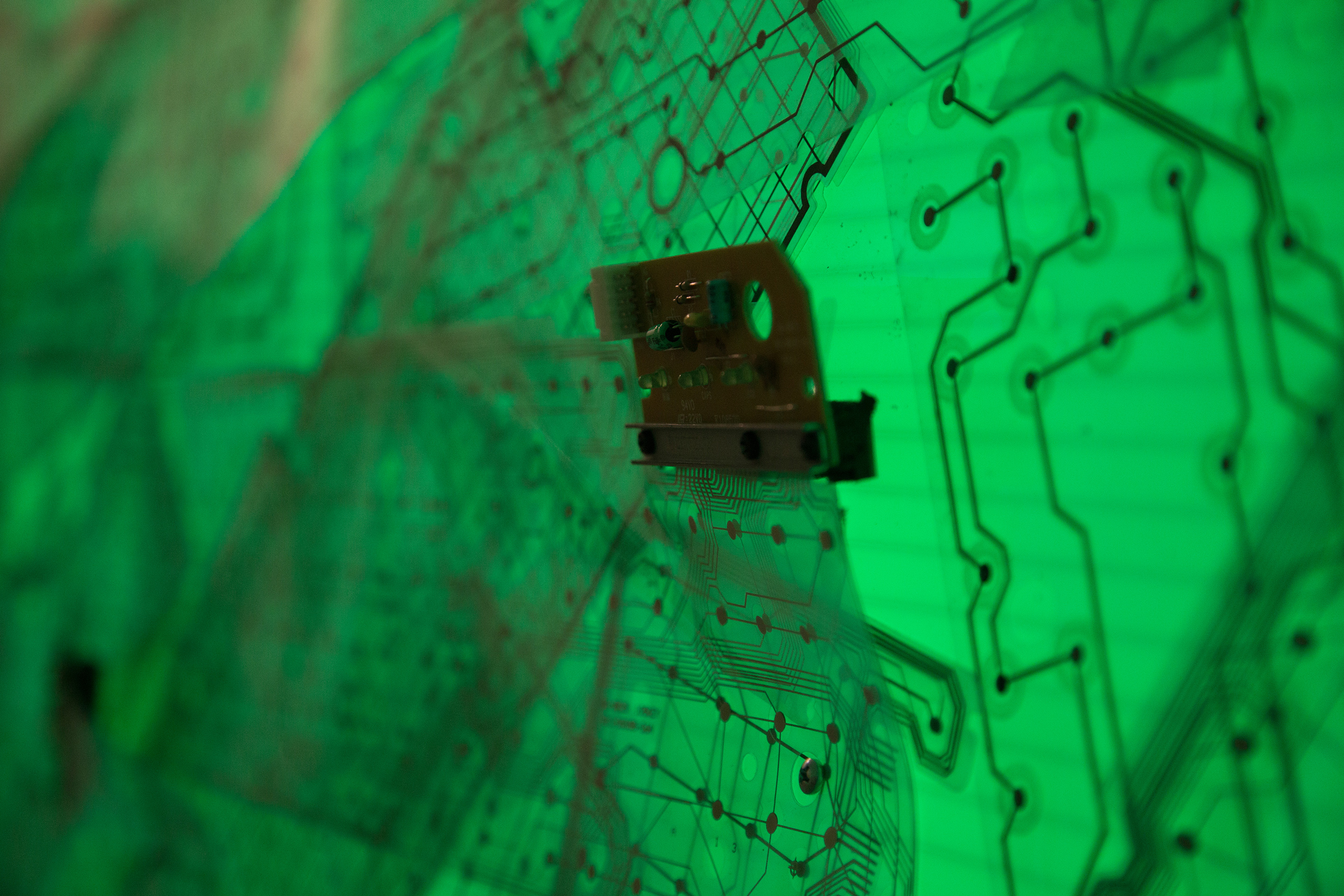
The OCC, Athens, is a cultural space which hosts events and actions across the whole spectrum of the arts from theatre, dance, music, cinema and the visual arts to digital and hybrid art and the written word. It showcases contemporary cultural expression, supports Greek artists, cultivates international collaborations, explores the boundaries between science, art and society and promotes lifelong learning for people of all ages. www.sgt.gr.

